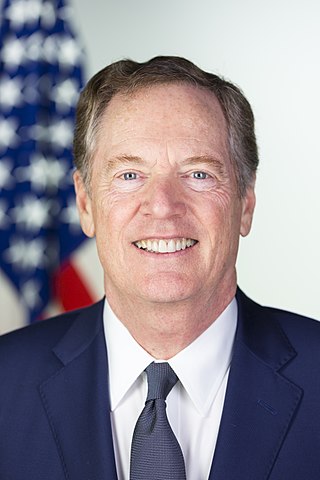U.S. and South Korean negotiators met all day last Friday in an effort to save the free trade agreement that unites the two countries. On the sidelines, the U.S. agriculture sector is desperately hoping the negotiators succeed so farmers and ranchers here can continue shipping more and more meat and grain to the Asian country.
While it’s clear the Trump administration wants to reduce the trade deficit with South Korea, it’s not clear how it plans to achieve that when it comes to altering the Korea-U.S. pact, known as KORUS.
The U.S. exported $63.8 billion in goods and services to South Korea in 2016, according to the U.S. Trade Representative. The U.S. also imported $80.8 billion from South Korea, leaving a $17 billion deficit for the U.S.
While that may not be a sign of failure for some economists, the Trump administration has made it a priority to turn all deficits into surpluses, and that has painted a bull's-eye on KORUS, which has spurred South Korea’s exports of automobiles and other manufactured goods.
What it also spurred was U.S. agricultural exports, and that’s a bright side that should not be tinkered with or endangered, U.S. farm group representatives say.
“For us, the Korean agreement has allowed the beef industry to really grow in these market conditions to the point where we’re now the number-one foreign import source for beef in Korea,” said Kent Bacus, international trade director for the National Cattlemen’s Beef Association. “We’re shipping more than Australia.”

Kent Bacus, NCBA
Before KORUS was implemented in 2012, there was a 40 percent tariff on U.S. beef. That’s been dropping steadily, giving U.S. exporters an edge over Australian shippers. Tariffs will hit zero for U.S. beef by 2027.
The U.S. became the largest beef supplier to South Korea in 2016, surpassing Australia for the first time. U.S. beef exports to South Korea reached about $1.1 billion in 2016, almost double what they had been just four years earlier, according to NCBA data. And, Bacus said, new data shows that U.S. beef exports to South Korea will likely be just as strong in 2017.
But if the U.S. were to pull out of KORUS – and President Donald Trump has threatened to do exactly that – those gains could be easily erased as tariffs were reinstated.
“We’ve got a lot at risk here,” Bacus told Agri-Pulse. “So we’re hopeful that whatever changes are made to KORUS … they don’t mess up a good thing for the beef industry.”
Ranchers have a lot on the line, but so do farmers.
South Korea lifted a 1.8 percent tariff on U.S. wheat as part of KORUS. If that tariff were to be reinstated, Australia and Canada would gain a significant edge over the U.S.
“Korea's flour milling and wheat foods industries like U.S. wheat and consistently import three different classes,” said U.S. Wheat Associates spokesman Steve Mercer. “In fact, sales are up 19 percent so far this marketing year. KORUS secured tariff-free access for our wheat. We support making improvements in existing agreements as long as the negotiations do not put that access at risk and open the door to Australia and Canada, competitors that also have tariff-free access to Korea under their respective (free trade agreements).”
But much of what is actually being negotiated is unknown. The Friday talks were closed to the press and a USTR spokeswoman did not respond to questions about what was discussed.
And USTR Robert Lighthizer did not reveal much in the statement he released after the talks.
“We have much work to do to reach an agreement that serves the economic interests of the American people. Our goals are clear: We must achieve fair and reciprocal trade between our two nations,” he said. “We will move forward as expeditiously as possible to achieve this goal.”

USTR Robert Lighthizer
Despite the opaqueness of the talks, the U.S. Grains Council (USGC) remains upbeat. Exports to South Korea of corn, sorghum, barley and distillers grains – an ethanol byproduct used as livestock feed – are all increasing and the group is expecting that to continue.
South Korean tariffs on corn and sorghum dropped to zero, thanks to the trade pact, under which the country agreed to a new 2,500-ton tariff rate quota for barley that increases by 2 percent every year.
“As a result, U.S. exports of feed grains in all forms to South Korea have steadily increased, reaching 8.32 million metric tons in 2016/2017, a 57 percent increase year-over-year,” according to a recent USGC report. “The 2016/2017 sales numbers include a six year-high for U.S. corn at 5.6 million tons (220 million bushels), placing South Korea as the third-largest world buyer.”
But even the smallest of tariff increases could depress exports, especially because South Korea already has free trade agreements with 52 other countries and is considering new pacts with Russia and South American countries, USGC said, stressing that the U.S. “needs the market access provided by KORUS in order to remain competitive in this market.”
It’s something U.S. negotiators understand very well, Bacus said.
“The biggest thing we have asked for is that we don’t jeopardize all the good that the agreement provides,” he said. “I think the (Trump) administration gets that.”
#30
For more news go to: www.Agri-Pulse.com


